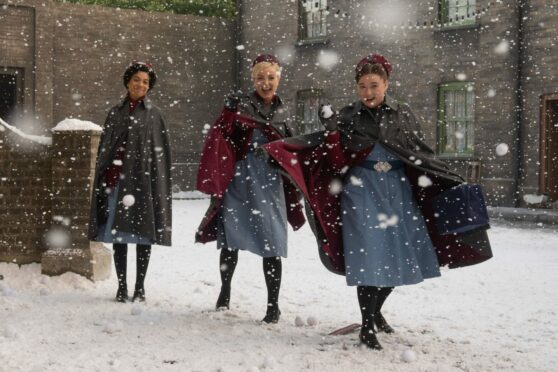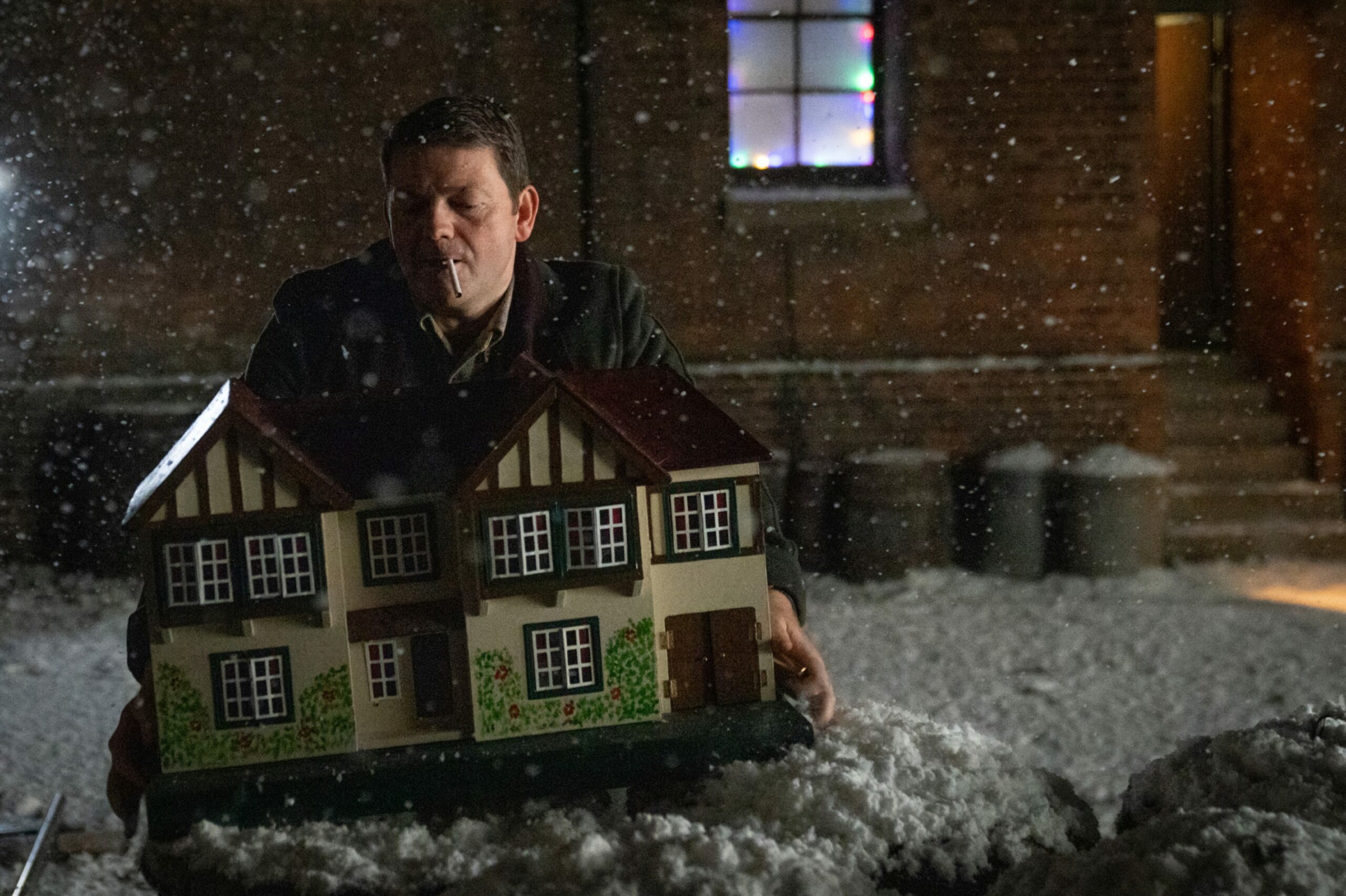
Chris Reilly knows the true meaning of Christmas and it has nothing to do with toys, turkey or TV.
The actor will play a part in the festive schedule of millions, with a starring role in Call The Midwife but it was his former role as manager of a support centre for vulnerable people which taught him the key to fulfilment over Christmas.
Before turning to acting, Reilly, 45, ran Rosshead House in Jamestown, West Dunbartonshire, providing shelter and care for people affected by addiction, homelessness and mental health issues. He recalled: “Christmas was about making sure everybody had something. We always ended up having a really good time. It was spontaneous and we all spent our time in the kitchen. I would catch myself sometimes, having to go off and compose myself.”
The Bafta-winning actor remembered: “I’d be thinking, ‘I’m safe, I’m here’ and even though I didn’t really know what I wanted to do with my life at that time, it nailed my feet to the floor. I don’t think there’s anybody else who would do anything different in those situations, I really don’t. And I think everybody would benefit from doing it. I certainly did.”
He followed in his father’s footsteps as manager of the centre but Reilly didn’t recall many happy Christmases. He said: “I was split between my mum’s and my dad’s and there was always fighting about that. You’d go to one house and there’d be an auntie going on about the other side, you’d go to the other and it would be the same.
“I honestly think the best way to enjoy yourself at Christmas is just to give. If you’re living in your own head all the time, thinking about your own problems, you’re comparing yourself to ghosts of your own creation and that can lead to a horrible energy.”
This year will be the first without his mother Mary, and he’ll be honouring her memory by cooking for 20, knowing she’d be at his back telling him what to do before, likely, sitting down to watch her boy on the telly.
“Mum loved Call The Midwife. I was gutted that I couldn’t get her down to the set but her health just wasn’t good enough,” he said.
“She was phoning me every day when I was on set and asking me to send her pictures. So we’re doing the honours for mum this year. There are 20 people coming to my house. I’m well drilled by her and I’m doing it her way. If I ever wanted to revive her then one way to bring her back to chase me out would be to not do it her way.”
Reilly reprises his role as struggling dad Bernie Mullucks, whose daughter is a victim of thalidomide, in Call The Midwife’s Christmas Day special, starring Helen George, Leonie Elliott and Megan Cusack.
“He has another child on the way, work is a bit thin on the ground coming up for Christmas and he’s struggling with the drink again,” he said. “He is in danger of running away from his responsibilities to his family by succumbing to the pressure of the season and the circumstances that are surrounding him.”
The BBC drama’s sepia-toned stories from a bygone era regularly reflect current issues. Reilly said: “The NHS is in better shape in Call The Midwife than it is now. Even though it’s a chocolate box version, where everybody tries to do their best. They’re trying to show that people have difficulties no matter what during this season.”
The star, who also features in the second series of Apple TV+ spy drama Slow Horses, was keen that Mullucks’ suffering wasn’t over-egged. “I’ve had discussions about my character because what they want from him tends to be that real pull on emotion. I sometimes think that can be gratuitous – when the music starts, that’s your cue to watch the telly and start greeting,” he said.
“But, at least in my storyline, we try to deliver that authentically, we try to pull back from it in a way that’s a bit less saccharine.”
Reilly came to acting aged 30, first as a hobby and eventually completing a scholarship at the Royal Welsh College of Music and Drama. He won a 2018 Scottish Bafta for his performance in military drama The Last Post and has picked up a wide array of roles in projects as diverse as Game Of Thrones and EastEnders. And viewers will see even more of him in the forthcoming third series of Slow Horses, when his character features in a major storyline.
“They wouldn’t let me play him Scottish, even though he’s Scottish in the book,” he said, laughing. “They didn’t think the audiences would understand. So I do him in a London accent. I’ll probably get hassle in a few years time for that.”
He is relishing the opportunities presented by his change of career but for him it’s always business, not showbusiness.
“I love this job but it’s just work, compared to what family is and what that time with family is,” he said. “You have to make every decision with five or so years’ time in mind when you might be thinking, ‘Did I do enough?’
“So many people in this industry chase something that they think is there and when you get to that side of the fence you realise it’s not there. Family matters more.”
Earlier this year, Reilly recorded the audiobook for Douglas Stuart’s novel, Young Mungo, the author’s follow-up to Booker Prize-winning debut Shuggie Bain. It’s a story about a love affair between two young men in Glasgow, his home town, growing up amid gang culture and violence.
He said: “Douglas Stuart’s voice is so important as a writer and Young Mungo is my kind of book. It’s where I’m from.
“His experience of privilege has been the same as mine, in that there hasn’t been a lot. And I really appreciate that he’s telling those stories. Even though the love story is a love story between two men I think even the most low-browed knuckle-dragger could see the gangs, the violence, the drugs and the risk and still appreciate it as a love story.
“I don’t know how many people I knew when I was younger who are dead to drugs and violence and suicide now. So to tell stories from that place and get them out there is such an important thing.”
Call The Midwife, Christmas Day, BBC1, 9pm

Enjoy the convenience of having The Sunday Post delivered as a digital ePaper straight to your smartphone, tablet or computer.
Subscribe for only £5.49 a month and enjoy all the benefits of the printed paper as a digital replica.
Subscribe © SYSTEM
© SYSTEM